Politicians mostly care about getting reelected and wielding power, so they pay attention to polls because they want to know what to say.
As a libertarian, I pay attention to polling data because I want to understand where the public has sensible views and where the public has silly views.
And if public opinion is misguided, it tells me to do more work.
But I also follow public opinion research because it is helpful to find out what words and phrases are best to use.
- People are more supportive of getting rid of the “death tax” than the are of getting rid of the “estate tax.”
- People are more supportive of an economic system of “free enterprise” than they are of “capitalism.”
- People are more supportive of “personal retirement accounts” than they are of “Social Security privatization.”
As a policy wonk, I find it strange that people will like or dislike a policy simply because different words are used.
But I pay attention because I want to figure out the most effective way of advancing economic liberty.
I’m providing all this background because the folks at the Pew Research Center have some new polling data on how Americans view government.
Some of the results are very encouraging, such as the very low level of trust in Washington.
But there’s a somewhat depressing paradox.
Most people have a low opinion of the federal government, but they still want Washington to play a big role.
As is often the case, I wonder whether voters are being asked well-designed questions.
For instance, one of the above examples is that people want a federal government that “effectively” handles threats to public health.
Perhaps it would have been more interesting and illuminating, however, if Pew had asked people whether the CDC and FDA actually are effective? Give their wretched incompetence during the pandemic, I would hope the poll would have found different results.
Likewise, most Americans wants to federal government to help people out of poverty. But what does that actually mean?
Bernie Sanders presumably would answer yes because he wants higher taxes and more redistribution, while I might answer yes because I want lower taxes and smaller government.
But I’m digressing. They key issue I want to address is the paradox of people having disdain for the federal government while still supporting government involvement.
And this brings me to this polling data about most people thinking Washington is involved in areas that should be left to state governments.
Indeed, the Pew report shows that the federal government is viewed most unfavorably and local governments get the best grades.
To me, this suggests that a “federalism” agenda could be popular.
And I frequently make the case for decentralization (on a wide range of issues, such as Medicaid, the pandemic, food stamps, infrastructure, etc).
To be sure, federalism is not a slam-dunk. After all, Pew shows that most Americans can’t identify a single area where their state governments do a good job.
I’ll close by observing that Switzerland is the gold standard for federalism, and that nation is very successful.
Heck, there’s even IMF research showing decentralization produces better results.
So what’s the key takeaway?
Well, federalism has declined in the United States and we are getting worse results. But perhaps a restoration campaign would be politically successful. After all, welfare reform was popular in the 1990s. Why not expand the idea?
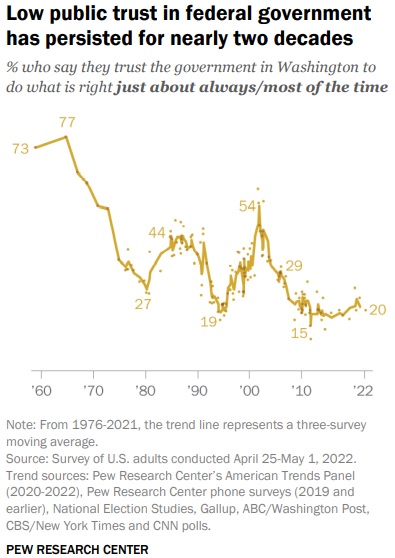
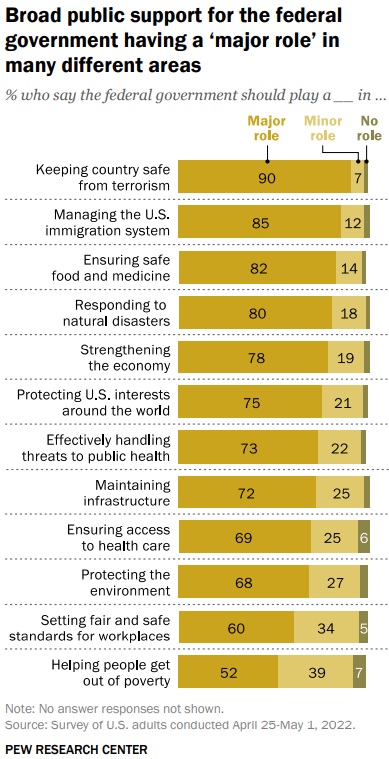
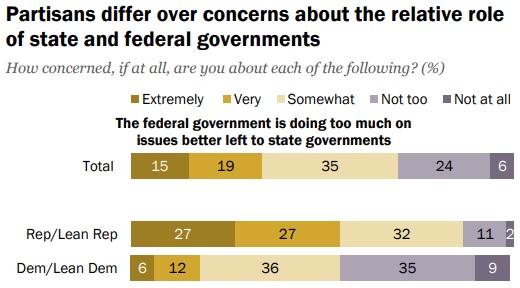
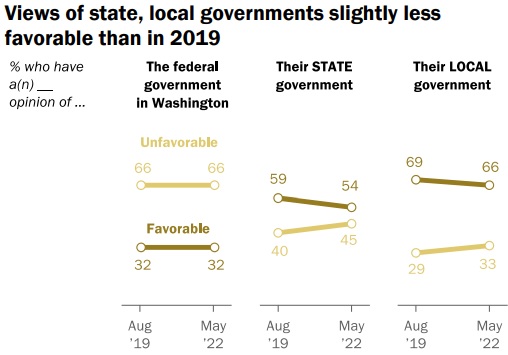
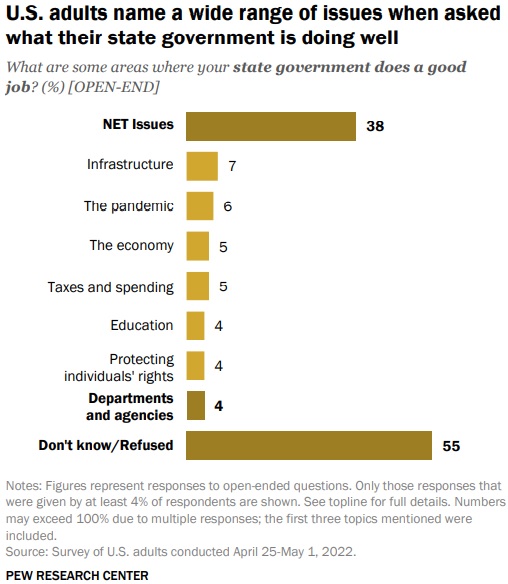
No comments:
Post a Comment